Na paisagem em constante evolução da tecnologia da informação, a computação em nuvem tem se firmado como uma solução poderosa para empresas de todos os tamanhos. Ao migrar para a nuvem, as organizações enfrentam a decisão crucial de como gerenciar e licenciar seu software. Duas opções comuns nesse cenário são o Microsoft SPLA (Service Provider License Agreement) e o BYOL (Bring Your Own License). Este artigo visa aprofundar a compreensão desses modelos, explorando seus meandros, benefícios e desafios, bem como fornecer orientações práticas sobre como garantir a conformidade com as diretrizes da Microsoft ao adotar o BYOL na nuvem.
O que é SPLA?
O SPLA, abreviação de Service Provider License Agreement, é um programa de licenciamento oferecido pela Microsoft para provedores de serviços que desejam disponibilizar software Microsoft para seus clientes em formato de serviço hospedado. Em vez de adquirir licenças tradicionais, os provedores de serviços pagam uma taxa mensal ou baseada no uso para oferecer software Microsoft aos seus clientes.
Como funciona o Contrato de Licença de Provedor de Serviços?
O SPLA permite que os provedores de serviços ofereçam uma ampla gama de produtos Microsoft, incluindo Windows Server, SQL Server, Exchange Server e muito mais, a seus clientes, sob um modelo de assinatura mensal ou baseado no uso. Essa flexibilidade permite aos provedores de serviços ajustar os recursos conforme a demanda dos clientes, sem a necessidade de grandes investimentos iniciais em licenças de software.
Quais são os benefícios do SPLA para os provedores?
Os provedores de serviços se beneficiam do SPLA de várias maneiras. Além da flexibilidade e escalabilidade mencionadas anteriormente, o SPLA simplifica a gestão de licenças, garantindo que as empresas estejam sempre em conformidade com os termos de uso dos produtos Microsoft. Além disso, os provedores de serviços podem oferecer aos seus clientes acesso a software atualizado e licenciado de forma adequada, sem os custos associados à compra de licenças tradicionais.
Quais são os benefícios do SPLA para os clientes finais?
- Flexibilidade Comercial: O SPLA oferece uma flexibilidade incomparável no processo de compra de licenças da Microsoft. Com opções mensais disponíveis no Microsoft CSP (Cloud Solution Provider), os clientes pagam apenas pelo que consomem a cada mês. Além disso, eles podem ajustar os modelos de licenciamento conforme suas necessidades evoluem, sem a necessidade de comprar novas licenças.
- Gerenciamento Simplificado de Licenças: No SPLA, não existem licenças tradicionais. Os clientes consomem o SPLA como um serviço, simplificando significativamente o gerenciamento de licenças.
- OPEX versus CAPEX: Financeiramente, o SPLA é tratado como uma despesa operacional (OPEX), o que pode ser benéfico para organizações que preferem esse modelo de custeio.
- Segurança e Atualizações: Com acesso contínuo às versões mais recentes do software Microsoft, os clientes do SPLA desfrutam de maior segurança e tranquilidade. Além disso, as atualizações para novas versões não afetam as faturas dos clientes.
- Migração para Nuvem: Para organizações com uma estratégia de TI centrada na nuvem, o SPLA oferece uma opção viável e flexível.
- Suporte por Provedor: Os provedores de serviços são obrigados a fornecer suporte técnico conforme os termos do programa SPLA, garantindo um ponto de contato único para todas as necessidades relacionadas à Microsoft.
O que é BYOL?
O BYOL, ou Bring Your Own License, é um modelo no qual os clientes trazem suas próprias licenças de software para uso em ambientes de nuvem. Isso permite que as empresas utilizem as licenças de software que já possuem em vez de adquirir novas licenças por meio de um provedor de serviços de nuvem.
Como funciona o Bring Your Own License?
Sob o BYOL, os clientes fornecem suas próprias licenças de software Microsoft para uso em ambientes de nuvem, em vez de adquirir novas licenças por meio de um provedor de serviços. Isso pode ser uma opção atraente para empresas que já investiram em licenças de software e desejam estender seu uso para a nuvem, aproveitando ao máximo seus investimentos existentes.
Quais os principais benefícios da BYOL?
- Maior flexibilidade: Com a verdadeira mobilidade de licenças, as empresas podem migrar de e para serviços com facilidade – sem precisar se preocupar em gerenciar diversas licenças para o mesmo produto em diversas plataformas e serviços.
- Redução/remoção de custos iniciais: Ao aumentar o uso de software, poder compartilhar e migrar sua licença significa economizar enormes custos iniciais. Licenças simultâneas em vários serviços podem aumentar as despesas por uma grande margem; BYOL permite que as empresas evitem esse problema.
- Maior liberdade de uso: Dentro dos termos da licença, as empresas têm muito mais flexibilidade sobre como desejam usar um serviço.
- Rastreamento e relatórios detalhados: Como tudo é gerenciado na nuvem e as cópias das licenças não são mais necessárias, é muito mais simples acompanhar a validade e o uso das licenças.
Potenciais desvantagens e limitações do BYOL da Microsoft
- Elegibilidade de Licença Limitada: Nem todas as licenças da Microsoft se qualificam para programas BYOL. É essencial revisar cuidadosamente os contratos para garantir que as licenças possam ser transferidas para a nuvem.
- Problemas de Conformidade Potenciais: Embora BYOL simplifique a conformidade com licenças, é crucial manter-se atualizado sobre os requisitos mais recentes para evitar penalidades.
- Complexidade no Gerenciamento de Licenças: BYOL pode adicionar complexidade, especialmente em ambientes multinuvem, exigindo ferramentas adicionais para um gerenciamento eficaz.
- Bloqueio do Fornecedor: A adoção de BYOL pode aumentar a dependência dos produtos da Microsoft, limitando a flexibilidade futura para mudar de fornecedores.
- Desafios da Migração: A migração para a nuvem é complexa, e BYOL adiciona outra camada de considerações, exigindo um planejamento cuidadoso e execução precisa.
Como você garante a conformidade com a Microsoft ao usar o BYOL na nuvem?
Para garantir a conformidade com a Microsoft ao adotar o BYOL na nuvem, as organizações devem implementar políticas e processos robustos de gerenciamento de licenças. Isso inclui rastreamento e monitoramento do uso de licenças, garantindo que apenas software licenciado seja utilizado e mantendo-se atualizado sobre as políticas de licenciamento da Microsoft. Além disso, é importante trabalhar em estreita colaboração com o provedor de serviços de nuvem para garantir que todas as diretrizes sejam seguidas corretamente e que a conformidade seja mantida ao longo do tempo.
Ao considerar as opções de licenciamento da Microsoft na nuvem, é fundamental avaliar cuidadosamente os benefícios e desafios de cada modelo para determinar qual se adequa melhor às necessidades e objetivos específicos de sua organização. Uma abordagem cuidadosa e estratégica pode ajudar a maximizar os benefícios do SPLA ou do BYOL, garantindo ao mesmo tempo conformidade e eficiência operacional em um ambiente de nuvem em constante evolução.
Aprofundando a Estratégia de Licenciamento: BYOL e SPLA em Detalhe
Ao explorar a fundo as opções de licenciamento, é crucial entender como ferramentas como o Visual Studio MSDN e o Office Professional Plus se encaixam nos modelos SPLA e BYOL. A decisão entre usar um provedor de serviços SPLA ou trazer sua própria licença (BYOL) impacta diretamente o ciclo de vida do seu software e seus custos operacionais.
BYOL: Maximizando o Investimento em Licenças Existentes
O modelo BYOL ganha destaque quando empresas buscam otimizar o uso de licenças já adquiridas. Por exemplo, ao migrar instâncias do Windows Server para a nuvem, o Windows Server BYOL permite que você utilize suas licenças do Windows Server existentes. Isso é particularmente vantajoso para organizações que já investiram em licenças de software como o SQL Server Standard ou o Windows Server Datacenter.
É vital, no entanto, estar atento aos requisitos de licenciamento. Nem todas as licenças são elegíveis para mobilidade de licenças. A licença do Windows, por exemplo, pode ter restrições específicas dependendo do contrato de licença e do tipo de instâncias do Windows que você pretende utilizar.
SPLA: Flexibilidade e Escalabilidade para Provedores de Serviços
Para provedores de serviços, o SPLA oferece a flexibilidade necessária para atender às demandas variadas de seus clientes. Com o SPLA, você pode oferecer licenças de assinatura para diversos produtos Microsoft, incluindo o Microsoft SQL Server, sem a necessidade de grandes investimentos iniciais. Isso é especialmente relevante ao provisionar áreas de trabalho remotas ou hosts dedicados.
A virtualização flexível do SPLA permite que você ajuste os recursos conforme a demanda, pagando apenas pelo que é utilizado. Isso se aplica tanto a núcleos físicos do host quanto a instâncias do Windows Server. Ao utilizar um provedor de serviços SPLA, você garante que está sempre em conformidade com o licenciamento da Microsoft.
Considerações Adicionais e Melhores Práticas
- Software Assurance: Investir em Software Assurance pode trazer benefícios adicionais, como direitos de atualização e suporte técnico.
- Requisitos de Licenciamento: Entender os requisitos de licenciamento para cada produto da Microsoft é fundamental para evitar problemas de conformidade.
- Parceiro de Mobilidade Autorizado: Trabalhar com um parceiro de mobilidade autorizado pode simplificar o processo de BYOL e garantir que você esteja aproveitando ao máximo seus investimentos em licenças.
- Microsoft SQL: O Microsoft SQL possui diversas opções de licenciamento, e é necessário entender qual a melhor opção para seu uso.
- Microsoft SQL Server: O Microsoft SQL Server possui diversas opções de licenciamento e é necessário entender qual a melhor opção para seu uso.
- License BYOL: O License BYOL é uma forma de licenciamento, onde o cliente traz a própria licença.
- Sistemas Operacionais: Avaliar qual sistemas operacionais são compatíveis com seu modelo de licenciamento.
- Perguntas Frequentes: Para responder suas perguntas frequentes sobre licenciamento, entre em contato com um especialista.
- Alexander Golev: Para mais informações sobre licenciamento e software assurance, procure por artigos de especialistas como Alexander Golev.
- Núcleos Físicos: Entender o licenciamento por núcleos físicos é essencial para otimizar custos em ambientes de host dedicado.
- Você está: Se você está procurando otimizar seus custos com licenciamento, entre em contato conosco.
- Você pode comprar: Descubra como você pode comprar as licenças da Microsoft de forma otimizada.
- Própria Licença: Entenda como usar sua própria licença na nuvem.
- Está Disponível: Descubra o que está disponível para seu modelo de licenciamento.
- Obter Mais Informações: Para obter mais informações sobre licenciamento, entre em contato com nossos especialistas.
Pronto para otimizar sua estratégia de licenciamento na nuvem?
A escolha entre SPLA e BYOL depende das necessidades e objetivos específicos de cada organização. Ao entender os meandros de cada modelo e seguir as melhores práticas de gerenciamento de licenças, você pode garantir a conformidade e otimizar seus investimentos em software na nuvem.
Se você está buscando maximizar a eficiência e a flexibilidade em sua infraestrutura de TI, é hora de considerar como o Microsoft SPLA e o BYOL podem beneficiar sua organização. Seja aumentando sua flexibilidade comercial com o SPLA ou reduzindo custos iniciais com o BYOL, as opções estão disponíveis para atender às suas necessidades.
Nossa equipe especializada está pronta para ajudá-lo a navegar por essas opções e implementar a solução que melhor se adapta ao seu ambiente de negócios. Entre em contato conosco e descubra como podemos ajudá-lo a alcançar seus objetivos de TI na nuvem. Juntos, podemos transformar desafios em oportunidades e impulsionar o sucesso de sua organização.











